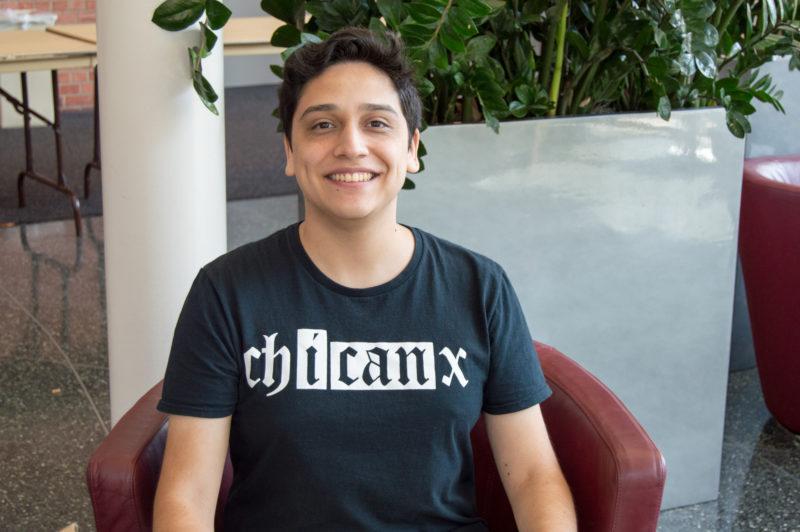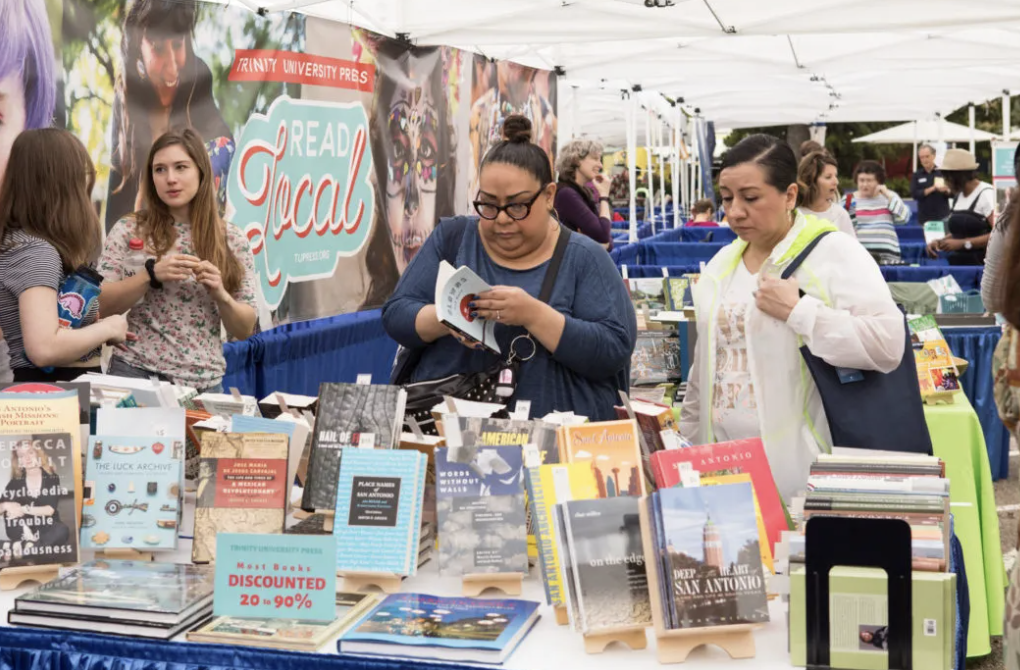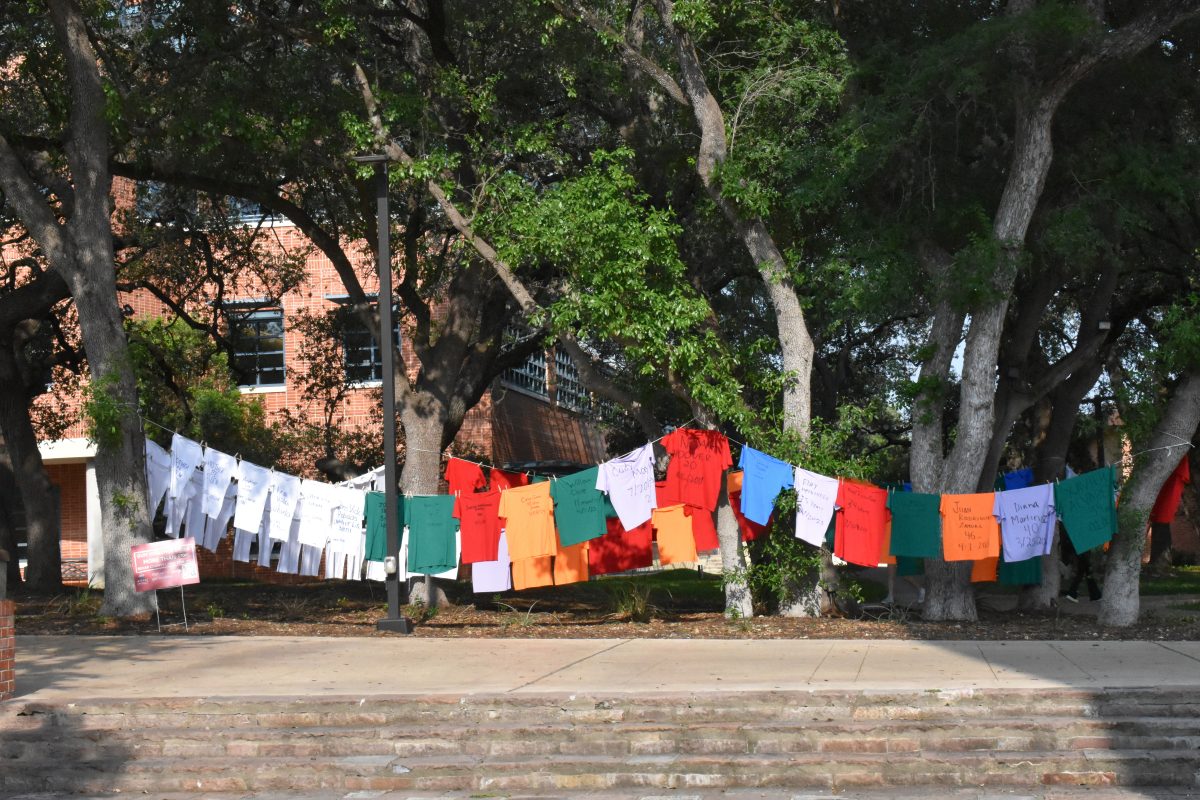Earlier this year, Trump’s proposed education budget called for a decrease in spending for several programs, among them the McNair Scholars Program. The McNair Scholars Program is targeted towards students who are first-generation, low income or underrepresented minorities who are interested in going to graduate school. There are currently 22 McNair scholars at Trinity.
Cristian Vargas, senior biology major and McNair Scholar, described the McNair Scholars Program as one of the most impactful things he has been a part of at Trinity.
“It has allowed me to have two amazing summer research opportunities,” Vargas said. “It really gives you the liberty to go wherever you want as long as you can find somebody who can sponsor you there. My first summer with the program, I was over at the UT Health Science Center doing research on new antifungal drugs, and this past summer I was over at the Baylor College of Medicine in Houston working on this vaccine development project.”
Vargas found out about the potential budget cut from his Facebook news feed. He spoke about the many ways that people can advocate for the continuation of the McNair Scholars Program.
“If other people care about it, they can certainly write to their representatives of Congress and express their concern,” Vargas said. “However, the COE [Council for Opportunity in Education] cautioned us about the wording that we choose to use when we are trying to raise awareness about this on social media because it shouldn’t be, “˜Do not cut McNair.’ That’s sort of reactive, and it draws attention to the McNair Scholars Program. They wanted it to be more positive and proactive, so the hashtag that’s going around on social media right now is #IAmMcNair or #McNairWorks.”
Kelly Lyons, chair and associate professor of biology and director of the McNair Scholars Program at Trinity, explained that the program is designed to increase students’ likelihood of graduating from a university and attending graduate school afterwards.
“In Trump’s budget proposal, McNair was named as a program that they intend to cut,” Lyons said. “They manipulated a bunch of statistics to validate that. They said that it has a six percent success rate. The goal of the McNair scholars program is to get people to get Ph.D.s. The likelihood of anyone in the United States getting a Ph.D. is around one percent of the population. The goal is to diversify the academy.”
Lyons explained that the McNair Scholars Program is successful and that the numbers are getting better over time.
“At the McNair Scholars Program, there’s a six percent success rate, but that’s going up over time,” Lyons said. “For some programs we are now at 10″“12 percent success rate. The Trump administration determined that that was a failing rate. They also feel that it’s not the role of the federal government to diversify the academy.”
Decory Edwards, junior mathematics and economics double major and McNair Scholar, feels that he has benefitted greatly from being a part of the McNair Scholars Program at Trinity, especially because of the mentors with whom he has worked.
“Having mentors in the program that truly are there to help has really rewarded me with a group of lifetime friends,” Edwards wrote in an email interview. “However, the most profound benefit has been the guidance that the program facilitates through being a part of it. From my entrance into the program until now, I’ve been pointed in the right direction as far as my future academic aspirations. My involvement with the McNair Scholars Program has reaffirmed that being a lifelong learner and scholar can be a reality for me.”
Another McNair Scholar at Trinity, Samsara Davalos Reyes, junior sociology and education double major, was inspired to take action when she heard about Trump’s proposed budget cut.
“My feelings of anger and fear toward Trump’s administration pushed me to take action,” Davalos Reyes wrote in an email interview. “For the first time in my life, I called my representative to invite them to the Trinity summer research symposium to show them my research project. In this process, I got all of my friends and family who had never called their representatives to call in defense of these programs as they has seen the impact it had made on my life. After weeks of calling, Teresa [Morrison] let us know of that our efforts were successful. It was refreshing to see that our voice was actually being heard and that our congressmen took into consideration our thoughts and experiences.”
Lyons was responsible for writing a grant to the board of education on behalf of the McNair program. The program was then renewed for five years.
“The prospects look pretty good. We applied for a grant to continue the McNair Scholars Program from the department of education, and we were just awarded it for the next five years, so barring Trump actually getting what he wants on the budget, we should be good to go,” Vargas said. “Higher education is a bipartisan issue because we have folks from specific subcommittees that are champions of McNair and that come from both sides of the political spectrum.”
Moving forward, it is very important to highlight the triumphs of the McNair Scholars so that students can continue to benefit from the program.
“We just need to keep talking about the successes of the program,” Lyons said. “It is a very successful program, students benefit greatly. Even if they don’t end up going on to do a Ph.D., so many of them are getting these terrific research experiences that just make them better citizens.”
More information about the McNair Scholars Program can be found at gotu.us/mcnair.







